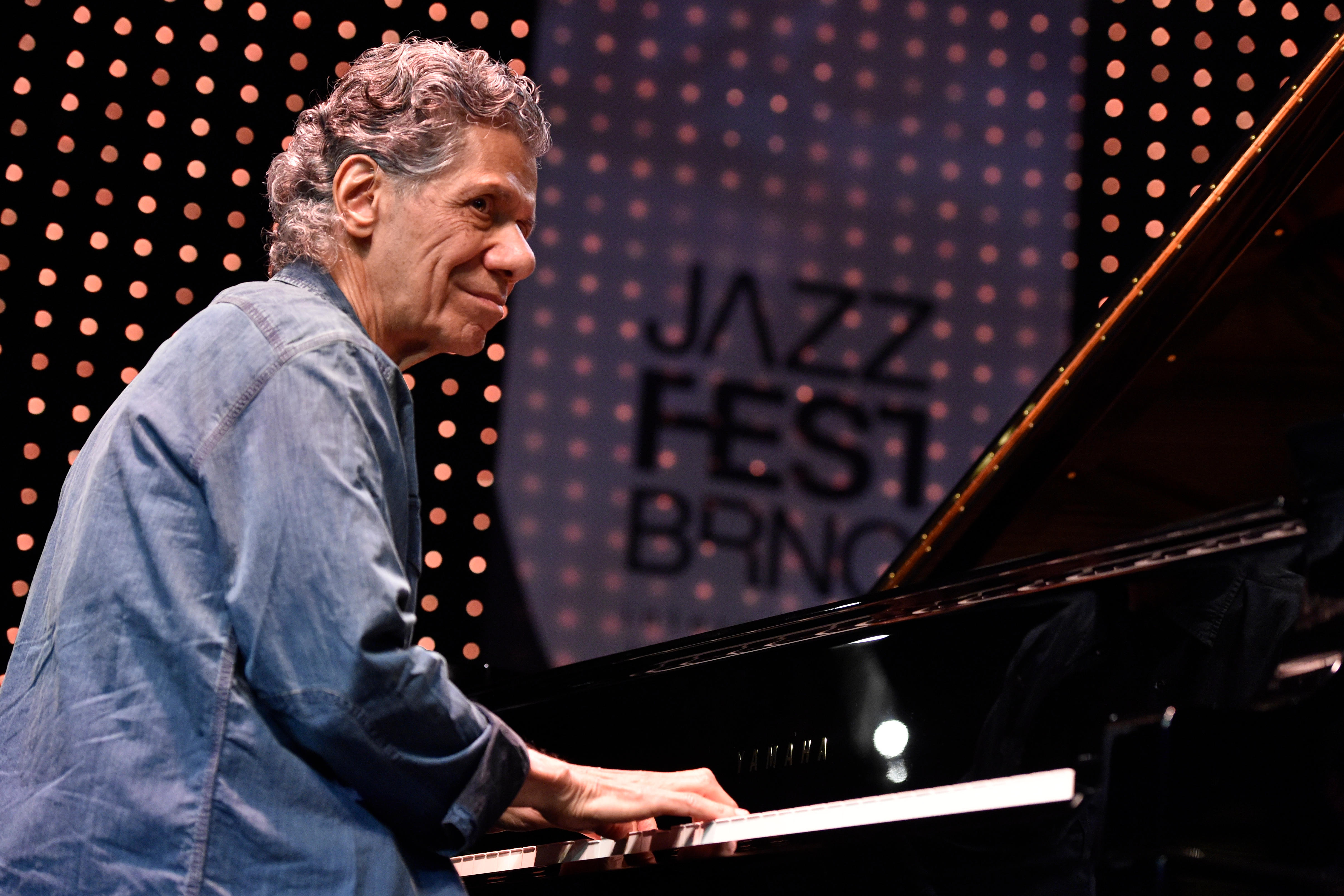With Chick Corea coming to India for a series of solo piano shows, we look back on the various jazz piano solo recordings and concerts of the past

Jazz pianist Chick Corea will perform in India this November. Photo: Vaclav Salek/CTK Photo/Alamy Live News
Jazz solo piano is perhaps the oldest form of jazz expression. Scott Joplin wrote and played the “Maple Leaf Rag,” an unaccompanied piano tune over 100 years ago, which is still played and heard. Another solo pianist, Jelly Roll Morton is remembered for his playing and also for his rather unfortunate claim to have “invented” jazz in 1902! Jazz solo pianists also sat on stage and accompanied movie visuals during the era of silent films. They were an integral part of the cinematic entertainment.
With the exciting announcement of Chick Corea coming to India for a series of solo piano concerts, various jazz piano solo recordings and concerts which have been popular and memorable come to mind.
Solo piano performance in jazz is at best a difficult exercise, both to play and to listen to. It becomes a one to one relationship between the performer and the listener, a monologue which needs some concentration to be enjoyed.
One is used to hearing lounge solo piano playing, say, in a hotel lounge or lobby. This is often just background sound meant to create a relaxed ambiance and for the most part it is just that: background music. Nobody is paying attention and the pianist is playing away, hopefully at least amusing himself, otherwise quite unnoticed and unappreciated.
In total contrast is concert hall solo piano. For a jazz pianist to play solo, it must take enormous focus and concentration to produce a good concert. Since it is almost completely improvised, the pianist must be single-minded in creating the flow. Of course it is assumed that he has a top class technique after long years of “paying his dues”–that’s when he gets to work!
I was fortunate enough to be in the audience and to listen to American pianist Herbie Hancock at a workshop he conducted for jazz piano. At one point he was asked by someone in the audience on how he went about composing a piece on the piano. After a long pause, Hancock said, “I sit at the piano and start with just a note. I build on that from how I’m feeling at that time.” He demonstrated with a series of notes before continuing, “Then I will build on this depending on how my day has gone–how happy I was with my breakfast, what my wife said in the morning, the traffic as I drive to the studio… anything else that happened around me. That gets into how I feel and that gets into my expression of the music. Of course I am not talking about Bombay traffic… that would be a chaotic sound! Now I have the basis of a composition and I need to garnish it with improvising on the notes.” He then proceeded to demonstrate more of the process and came up with a very pleasant composition.
One imagines that the thought process of a solo jazz pianist must be similar, with a lot of personal reflections from life entering the sound, a lot of subjectivity and the fluidity of an impromptu speaker. This becomes a heady mixture of sound which exists just at that moment. Now, from the perspective of the listener sitting in the audience and taking in this solo piano recital, a degree of concentration on the music is essential; in fact the deeper the concentration the more the chance that one is getting what the pianist is trying to communicate. It becomes a fascinating conversation if the listener is prepared to be receptive and to just pay attention and listen. This is not always easy–it needs some discipline and patience.
There are some very fine recorded jazz solo piano recitals. One recalls immediately the works of composer/pianists Errol Garner, Oscar Peterson (Exclusively for My Friends), Phineas Newborn Jr., Bill Evans (Conversations with Myself), Keith Jarrett (The Köln Concert) and of course Art Tatum.
Not lagging behind are the Maybeck Hall recordings. This is a series of solo piano live recitals organized by a record label at Maybeck concert hall, in Berkeley, California. This is a wonderful collection for a jazz listener to explore. I have been very excited about the Maybeck Hall recordings from Kenny Barron and Cedar Walton although one will find inspired solo recordings from several other fine jazz pianists. Listening to solo piano is another dimension for a jazz buff. It can be very satisfying and enjoyable.
The virtuosity of a pianist comes to the fore in solo work. Tatum has a solo recording on which he played with such speed and dexterity that another jazz pianist remarked of the performance, “That sounds like two or three pianists are all there, jammin’ together.” Of Tatum another jazz musician has remarked, “When Art died, he took the piano with him to heaven.” Tatum was an extraordinary jazz pianist by all accounts and way ahead of his time.
Speed apart, a fine jazz solo pianist will have a sense of continuity, emotion and ultimately the knack of storytelling. The art of solo piano brings a lot to the table. The rest is up to the ears in the audience! The stories are all there. Chick Corea will have his stories to tell. Be sure he will tell them eloquently. Anybody listening?
Sunil Sampat is a jazz critic and Contributing Editor of Rolling Stone India. Write to Sunil at jazzwala@gmail.com
Qazi Waseem Ahmed recently released a club-friendly rendition of ‘Darna Mohabbat Karle’ from the 1949…
Royal Stag BoomBox season three will host its final edition in Guwahati on Mar. 1,…
Featuring artists Raman Sharma, Ghatak Aafat, Arunaja and more
While at times bloated, his collaborative LP with PartyNextDoor is a return to form from…
The singer and fiancé Benny Blanco have been teasing their collaborative project, which arrives March…
The boy band will commemorate 25 years of their album Millennium with a historic Sphere…